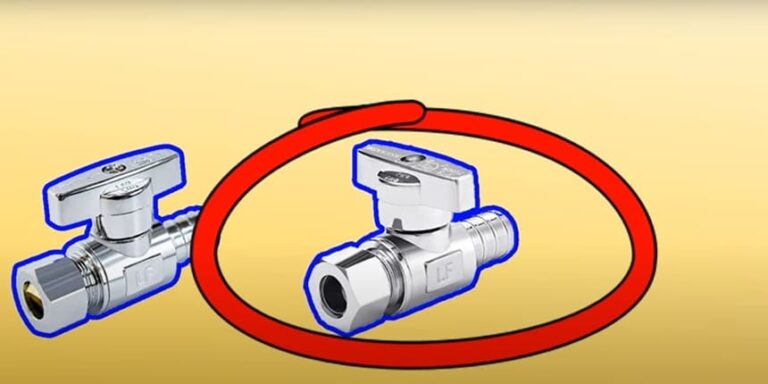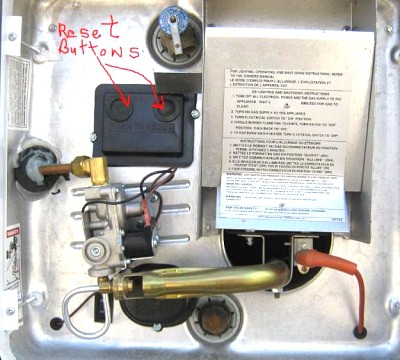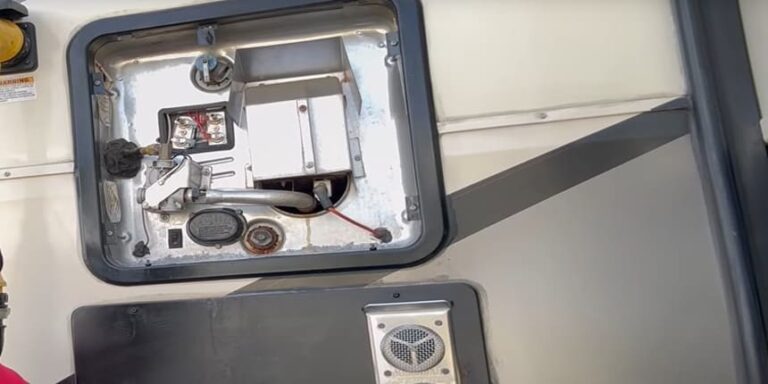Have you ever stood in your home and suddenly heard the sound of running water, only to realize it’s coming from your water heater?
That unexpected noise can catch you off guard and leave you wondering if something’s wrong.
You’re not alone. Many homeowners experience this puzzling sound and are left with questions. Is it a simple fix or a sign of a bigger problem? Understanding why your water heater sounds like running water can save you from potential headaches and costly repairs down the line.
We’ll dive into the reasons behind this mysterious noise and provide you with clear, actionable steps to address it.

Credit: www.strandbrothers.com
Common Causes Of Water Heater Sounds Like Running Water
Does your water heater sound like running water? This noise often signals an underlying issue. Knowing the common causes helps you address the problem promptly. Let’s explore some frequent culprits behind this puzzling sound.
#1: Leaking Pipes
Leaking pipes often lead to water heater noises. Tiny cracks or holes cause water to escape. This results in sounds resembling running water.
Inspect your pipes for visible leaks. Early detection prevents bigger issues.
#2: Faulty Valves
Faulty valves can cause persistent water sounds. Valves control water flow in the heater. A malfunctioning valve fails to shut off water properly.
This leads to continuous water flow sounds. Check your valves regularly for wear and tear.
#3: Sediment Buildup
Sediment buildup is a common cause of water heater noise. Minerals accumulate at the tank’s bottom over time.
This restricts water flow and causes unusual sounds. Regularly flushing the tank helps prevent sediment issues. Keep your water heater efficient and noise-free.
Identifying The Noise Source
Have you ever heard a noise from your water heater that sounds suspiciously like running water?
It’s a common issue that can be quite baffling. Identifying the source of this noise is crucial to prevent potential damage and ensure your water heater functions efficiently.
Let’s dive into understanding what might be causing these watery sounds.
Listening For Specific Sounds
Start by paying attention to the type of sound you’re hearing. Is it a constant rush or an intermittent trickle?
A consistent noise might suggest a leak, whereas a sporadic sound could point to water expanding and contracting inside the tank.
Get close to the heater and listen carefully. Maybe you’ll hear a hissing sound, which might indicate steam escaping.
Or perhaps there’s a gurgle, hinting at sediment build-up at the bottom of the tank. Each sound offers a clue.
Consider how often you hear this noise. Does it happen after hot water use or randomly?
This can help narrow down the possible causes. A noise after usage might be normal, but random noises could signal a problem.
Checking External Connections
Inspect the connections leading to and from your water heater. Are the pipes securely fastened?
Loose connections can create unusual sounds as water flows through them.
Look for any visible leaks around the inlet and outlet valves. Even a small drip can produce a sound similar to running water. Fixing these leaks promptly can prevent bigger issues.
Don’t forget about the pressure relief valve. If it’s discharging water, it might be trying to regulate excessive pressure.
This could be normal, but excessive discharge may need professional attention.
Have you ever noticed how a simple fix can solve a perplexing problem?
Sometimes tightening a connection or replacing a worn-out washer is all it takes. When you hear odd sounds, a quick check could save you from a costly repair.
What unexpected discoveries have you made while examining household appliances?
Share your experiences and insights. Addressing these noises early on can prevent a small issue from becoming a major headache.
Diy Troubleshooting Steps
Experiencing a water heater that sounds like running water can be puzzling. Before calling a professional, consider some DIY troubleshooting steps. These simple actions might solve the issue without extra costs. Understanding these steps will help you manage your water heater better.
DIY #1: Inspecting For Leaks
Start by examining the water heater and surrounding area for leaks. Look at the base of the unit. Check for puddles or dampness.
A leak might cause the sound of running water. Use a flashlight for dark areas. Inspect the pipes and connections. Tighten any loose fittings you find.
DIY #2: Flushing The Tank
Over time, sediment builds up in the tank. This can create odd sounds. Flushing the tank removes these deposits. Turn off the heater and water supply first. Attach a hose to the drain valve. Direct it to a safe drainage area.
Open the valve and let the tank empty. Refill the tank and restart the heater. This might reduce the noise.
DIY #3: Testing Pressure Relief Valve
The pressure relief valve releases excess pressure from the tank. If faulty, it might cause sounds. To test it, locate the valve at the top or side of the heater.
Lift the valve’s lever slightly. Water should flow out. If not, consider replacing the valve. Ensure the valve closes fully after testing. This prevents leaks and noise.
When To Call A Professional
Hearing a water heater that sounds like running water? This noise may signal a hidden leak or malfunction. Contacting a professional ensures safe and efficient repairs, preventing potential damage and costly issues.
When your water heater sounds like running water, it can be puzzling and even concerning. While some noises are typical, others may indicate underlying issues.
Knowing when to call a professional can save you from further complications and ensure your appliance is running smoothly. Let’s explore a few critical situations that warrant a professional touch.
Persistent Noises
If your water heater consistently sounds like running water, there might be a problem. Occasional sounds are normal, but constant noises could suggest a leak or mineral buildup.
Imagine waking up every day to the sound of running water; it’s not only annoying but potentially damaging. Have you tried adjusting the settings or flushing the system without success? It might be time to bring in an expert to diagnose and fix the issue.
Visible Damage
Visible damage is a clear signal to call a professional. It’s easy to overlook a small dent or crack, but these can escalate quickly. Once, I ignored a minor dent in my heater, and it turned into a significant leak overnight.
Don’t wait for a small problem to grow; inspect your water heater regularly. If you notice any visible damage, it’s best to get a professional opinion before it becomes costly.
No Improvement After Diy
Have you attempted DIY solutions with no success? It can be tempting to solve the issue yourself, especially with countless online tutorials. But if there’s no improvement, it’s wise to seek professional help.
A friend of mine spent hours trying to fix a persistent noise only to make it worse. Remember, professionals are trained to handle complex problems that might not be apparent to the untrained eye.
You’ve tried everything: flushing, adjusting, inspecting. Yet, the issues persist. When do you decide to call a professional? Consider the risks and potential costs of waiting. Wouldn’t it be better to ensure your water heater’s longevity and functionality with expert care?
Preventive Maintenance Tips
Strange water heater noises might hint at sediment buildup. Flushing the tank regularly prevents this issue. Additionally, inspecting and replacing the anode rod extends the heater’s life. Regular check-ups ensure efficient performance and safety.
If your water heater sounds like it’s running water, it might be time to consider some preventive maintenance.
Regular care can prevent unexpected breakdowns and extend the life of your appliance. By adopting a few simple practices, you can ensure your water heater runs efficiently and quietly.
Regular Inspections
Regular inspections are vital. Check your water heater every couple of months. Look for signs of wear, rust, or leaks.
A small leak today can become a big problem tomorrow. Catching issues early saves you time and money. Have you ever noticed a slight puddle near your heater and ignored it? Next time, take action immediately.
Annual Flushing
Flushing your water heater once a year is a smart move. Sediment can build up over time, causing noise and inefficiency.
\Draining the tank and clearing out sediment keeps your heater running smoothly. It’s like spring cleaning for your appliance. The first time you try it, it might seem daunting, but the payoff in performance is worth the effort.
Monitoring Water Pressure
Monitoring water pressure is crucial for your heater’s health. High pressure can stress your system, leading to noise and leaks. Install a water pressure gauge to keep an eye on things.
A pressure-reducing valve can help if levels are too high. Ever felt your shower pressure was too intense?
That might be a sign your system is under strain. Taking these preventive steps ensures your water heater remains in top shape. Why wait for a problem when you can prevent it? Your proactive approach can lead to fewer surprises and a longer-lasting appliance.
Selecting A New Water Heater
Choosing a new water heater is a crucial decision for any homeowner. It’s not just about getting hot water. It’s about ensuring efficiency, cost-effectiveness, and meeting your specific needs. Understanding the different options will help you make a better choice.
Types Of Water Heaters
There are several types of water heaters available. Traditional tank water heaters store and heat water in a large tank.
Tankless water heaters heat water directly without using a storage tank.
Heat pump water heaters use electricity to move heat from one place to another, rather than generating heat directly.
Solar water heaters use the sun’s energy to heat water.
Energy Efficiency Considerations
Energy efficiency is a key factor in selecting a water heater. Tankless models are often more energy-efficient because they heat water only when needed.
Heat pump water heaters use less electricity, making them a smart choice. Solar water heaters are very efficient and reduce energy bills by using renewable energy.
Budget And Installation Costs
Budget and installation costs vary greatly between water heater types. Tankless models can be expensive upfront but save money over time.
Traditional tank heaters are cheaper initially but may cost more in energy use. Heat pump and solar heaters have higher installation costs but offer long-term savings.
Consider both the purchase price and ongoing costs.
:max_bytes(150000):strip_icc()/water-heater-problem-making-noises-4103881-05-43c9afefbeb74ebca29f497b30846a0d.jpg)
Credit: www.thespruce.com
Frequently Asked Questions
Q: Why Does My Water Heater Sound Like Running Water?
A water heater may sound like running water due to sediment buildup. This causes water to flow unevenly, creating noise.
Flushing the tank can help reduce these sounds. Regular maintenance is key to preventing this issue.
Q: Is The Running Water Sound A Cause For Concern?
Yes, it can indicate potential issues like leaks or sediment buildup. Ignoring it may lead to efficiency problems or damage.
Addressing the issue promptly can prevent costly repairs.
Q: How Can I Fix A Noisy Water Heater?
Start by flushing the tank to remove sediment. Check for leaks and tighten any loose connections.
If the noise persists, consult a professional plumber for a thorough inspection.
Q: Can Water Heater Noises Indicate A Leak?
Yes, persistent running water sounds may suggest a leak. Inspect your water heater and surrounding areas for any signs of water damage.
Early detection can prevent extensive water damage and costly repairs.
The End
A water heater sounding like running water can cause concern. Understanding the reasons helps in solving the issue. Check for leaks or mineral build-up. These are common culprits. Regular maintenance prevents most problems. Listen for unusual sounds. They often signal underlying issues.
Address problems early to avoid costly repairs. A well-maintained water heater runs quietly. Peace of mind comes with a quiet home. Take action when odd sounds arise. Your water heater deserves attention and care. Enjoy hot water without noise. Ensure your water heater works efficiently.
A small effort keeps it running smoothly.



